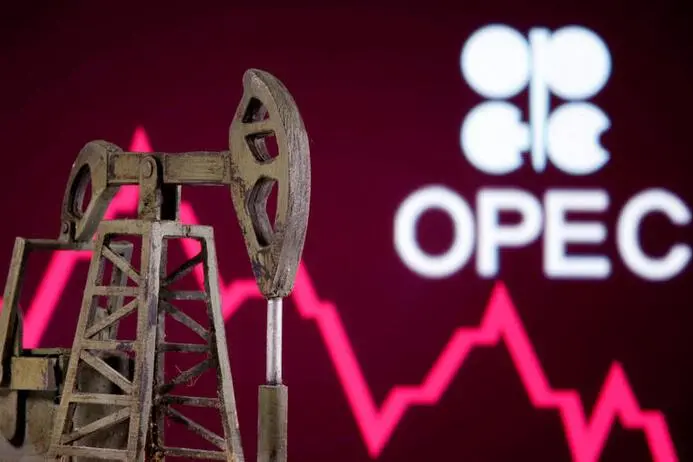PHOTO
LONDON - OPEC oil output in January registered the biggest monthly drop since July, a Reuters survey found, as several members implemented new voluntary production cuts agreed with the wider OPEC+ alliance and unrest curbed Libyan output.
The Organization of the Petroleum Exporting Countries pumped 26.33 million barrels per day (bpd) this month, down 410,000 bpd from December, the survey found. December's total strips out Angola, which has left OPEC.
The latest decline marks a further drop in market share for OPEC, which began curbing output in late 2022, in order to support the market and counter increased output from non-OPEC countries such as Brazil and the United States.
In January, the biggest decline came from Libya, one of the OPEC members not required to restrain output, after unrest prompted the shutdown of the Sharara oilfield, one of the country's largest.
Some OPEC members pledged voluntary cuts in two rounds - in April 2023 and November 2023, and Saudi Arabia made an additional voluntary cut. Output in January was 214,000 bpd above the implied OPEC target, largely because of Iraq, Nigeria and Gabon pumping more than their targets, the survey found.
Iraq and Kuwait each cut output by 140,000 bpd as part of the new round of voluntary cuts, although Iraqi output remains 141,000 bpd above the country's self-declared target for the first quarter, the survey found.
The next-largest cut came from Iran, also exempt from quotas, which lowered exports, the survey found. Iran is still pumping near a five-year high reached in November after posting one of OPEC's biggest output increases in 2023 despite U.S. sanctions still being in place.
Algeria cut output by 40,000 bpd, implementing most of its voluntary reductions.
Among those with higher output, Saudi production edged up by 40,000 bpd although it was close to its target of around 9 million bpd. The top exporter extended a voluntary 1 million bpd cut into the first quarter as part of November's OPEC+ deal.
Nigeria raised output by 40,000 bpd, the survey found, as some crude was processed in the new Dangote refinery and exports held largely steady, the survey found. Output was 40,000 bpd above the country's 2024 target.
The Reuters survey aims to track supply to the market and is based on shipping data provided by external sources, LSEG flows data, information from companies that track flows - such as Petro-Logistics and Kpler - and information provided by sources at oil companies, OPEC and consultants.
(Reporting by Alex Lawler Additional reporting by Ahmad Ghaddar Editing by David Goodman and David Evans)





















